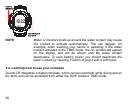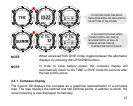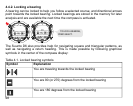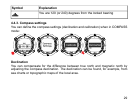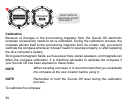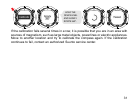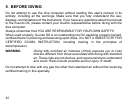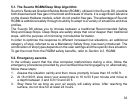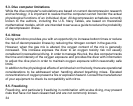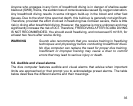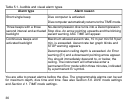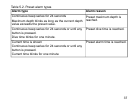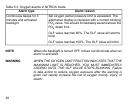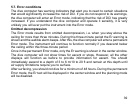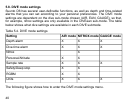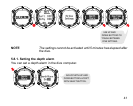5.3. Dive computer limitations
While the dive computer's calculations are based on current decompression research
and technology, it is important to realize that the computer cannot monitor the actual
physiological functions of an individual diver. All decompression schedules currently
known to the authors, including the U.S. Navy Tables, are based on theoretical
mathematical models, which are intended to serve as a guide to reduce the probability
of decompression illness.
5.4. Nitrox
Diving with nitrox provides you with an opportunity to increase bottom times or reduce
the risk of decompression illness by reducing the nitrogen content in the gas mix.
However, when the gas mix is altered, the oxygen content of the mix is generally
increased. This increase exposes the diver to an oxygen toxicity risk not usually
considered in recreational diving. In order to manage this risk, the dive computer tracks
the time and intensity of the oxygen exposure and provides the diver with information
to adjust the dive plan in order to maintain oxygen exposure within reasonably safe
limits.
In addition to the physiological effects of enriched air on the body, there are operational
considerations to be addressed when handling altered breathing mixes. Elevated
concentrations of oxygen present a fire or explosion hazard.Consult the manufacturer
of your equipment to check its compatibility with nitrox.
5.5. Freediving
Freediving, and particularly freediving in combination with scuba diving, may present
risks that have not been researched and are not commonly known.
34



